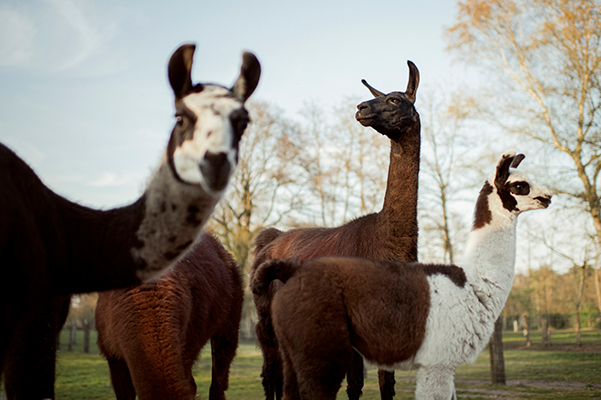Editor’s note: This story is part of The Daily Texan’s coverage of how coronavirus concerns are affecting UT-Austin. Read the rest of our coverage here.
UT scientists are researching an antibody in llamas that could be used as a therapeutic treatment to combat COVID-19.
The discovery made by researchers in the United States and Belgium was published in the scientific journal Cell on Tuesday. Researchers from UT, the National Institutes of Health and Ghent University in Belgium contributed to the research, according to a UT News release.
“This project begins with an interesting biological quirk llamas have,” said Daniel Wrapp, a co- author on the paper. “They create this interesting class of antibodies, which are called nanobodies.”
Antibodies are proteins the immune system uses to neutralize pathogens such as bacteria and viruses. The nanobodies llamas produce are smaller and more stable than conventional antibodies that humans produce, said Wrapp, a molecular biosciences graduate student fellow.
He said nanobodies can bind to crevices and pockets on viruses that other antibodies cannot bind to.
The team learned that these nanobodies neutralize certain coronaviruses so they are unable to infect cells by binding to the spike proteins on the viruses which attach to and enter cells, Wrapp said.
In 2016, scientists immunized a llama in Belgium with the spike proteins of coronaviruses that cause SARS and MERS, Wrapp said. After analyzing the llama’s antibodies, he said they found one antibody that neutralized the MERS spike and another that neutralized the SARS spike.
“We were in the process of writing up these results when the current outbreak developed,” Wrapp said. “So, we tested our SARS-directed nanobody for reactivity against the spike protein that comes from the coronavirus that causes COVID-19.”
Wrapp said the SARS-directed nanobody also bound to the spike on the novel coronavirus.
“We're hoping that it can act as a potential therapeutic to reduce disease burden in COVID-19 patients,” Wrapp said.
Now that the findings have been published, Wrapp said the research team is beginning nonhuman, preclinical trials.
“If everything goes perfectly and we see protection in hamsters and nonhuman primates, we would move into phase-one clinical trials in humans,” Wrapp said. “If everything goes perfectly, we would potentially have an approved treatment in about a year.”
In the release, Jason McClellan, co-author and head of McClellan lab, where the research is being conducted, said this antibody therapy is different from a vaccine because vaccines need to be administered a few months before infection to work.
“With antibody therapies, you’re directly giving somebody the protective antibodies and so, immediately after treatment, they should be protected,” McClellan, an associate professor of molecular biosciences, said in the release. “The antibodies could also be used to treat somebody who is already sick to lessen the severity of the disease.”
Nianshuang Wang, a co-author and molecular biosciences research associate, said the COVID-19 pandemic has inspired researchers from many fields to help find treatments for this new virus, and that researchers should not relax their efforts if an effective treatment is found because there may be another coronavirus outbreak in the future.
“We should build a new system to be well prepared for this kind of pandemic,” Wang said.
This story was updated to correct the spelling of a source's name. The Texan regrets this error.





















